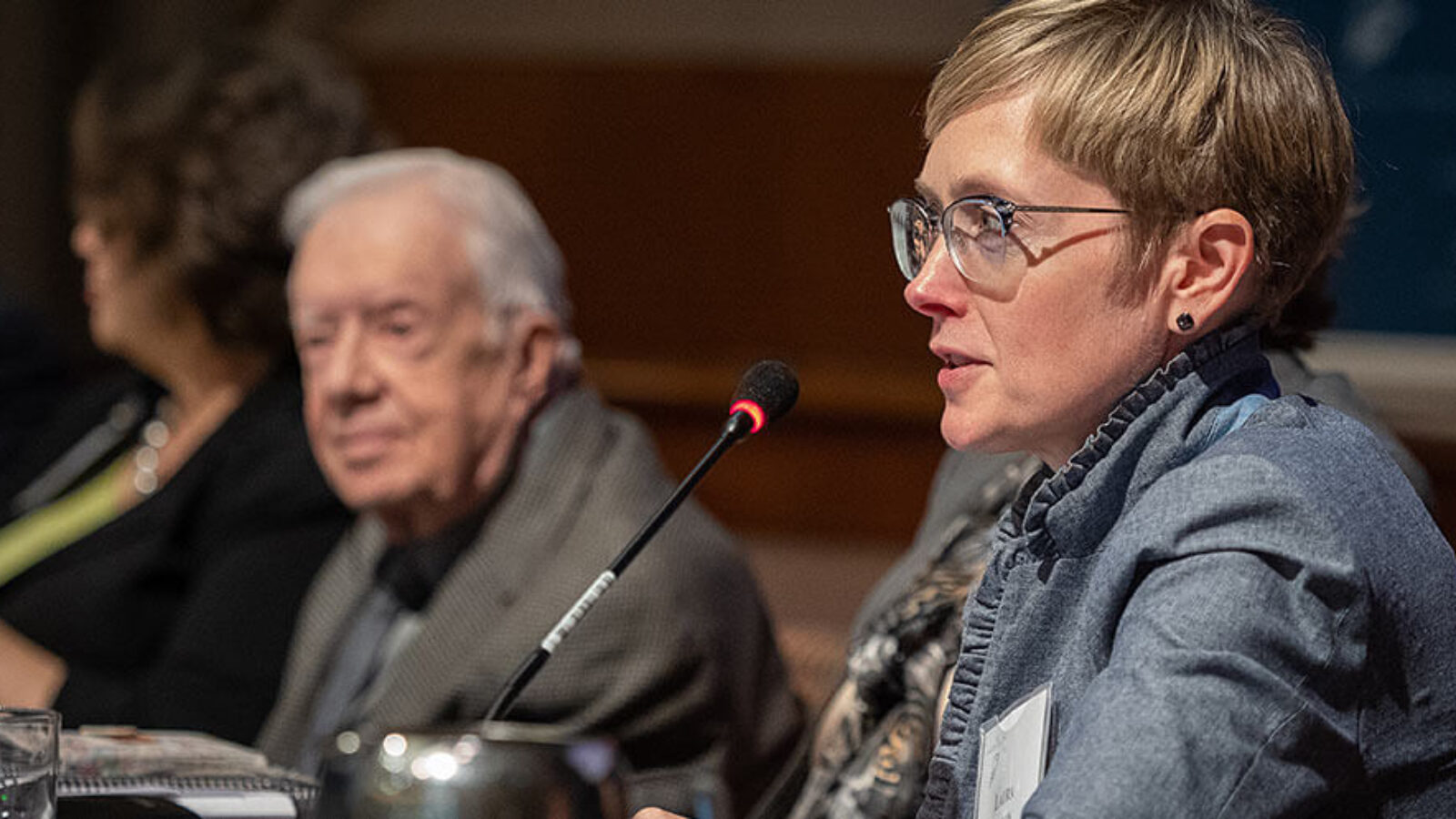Director Sees Security, Civil Rights as Integral Partners
Laura Olson came to The Carter Center from the U.S. Department of Homeland Security in 2017 because she wanted her work to once again have more of an international focus.
She’d started her career at the International Committee of the Red Cross, living in Geneva and Moscow, among other places, before taking a job in 2010 at Homeland Security in the Office for Civil Rights and Civil Liberties. There, she worked on immigration policy and human rights, focusing on detention as well as on ways to protect people from human trafficking and to help law enforcement avoid profiling.
“We stressed to law enforcement that you can’t ‘balance’ security and civil rights; they are integral to one another,” said Olson, who now heads the Carter Center’s Human Rights Program. “Ensuring rights enhances security.”
Olson grew up in Duluth, Minnesota, with parents who worked in the medical field. She attributes her passion for justice to their influence.
“To this day, I recall my dad telling me about teaching at a university in Alabama when I was very young,” Olson recalled. “He invited his students, some of whom were African-American, to our house. Afterwards, some neighbors came over to tell him, ‘We don’t invite those type of people to our neighborhood.’ He was shocked and deeply affected by it.”
“He and my mother instilled in me a respect for all people, regardless of differences.”
They also instilled a love of the outdoors.
“My family and I spent much of our time camping, canoeing, and fishing — yes, with the loons, moose, bears — and mosquitoes,” she said. “If I hadn’t gone into human rights, I’d probably have focused on protecting the environment so that we can all enjoy it.”
Instead she went to law school at the University of Iowa and then got a Master of Laws in international legal studies at New York University.
That led to the Red Cross, where she first worked with universities in the former Soviet states, helping them enhance their instruction of international humanitarian law. Later, she worked on the issue of state-sponsored disappearances, serving as the ICRC’s representative to the U.N. working group that drafted the treaty to prevent enforced disappearances. Her last few years at the ICRC were spent in Washington, D.C., dealing with issues related to the Afghanistan and Iraq wars and making several trips to the Guantanamo Bay Detention Facility to assess conditions there.
Olson jumped at the chance to work at The Carter Center because of the opportunity to work directly with communities in other countries.
“What spoke to me was that The Carter Center really listens to people. We are there to facilitate the changes they want to see and not to tell them what they should do. I also like that we help build local capacity so that communities can independently accomplish their goals.”
Much of the Human Rights Program’s work in the last two years has centered on the Mobilizing Faith for Women and Girls Initiative in Nigeria and Ghana. The program partnered with Tostan to offer human rights training – with a focus on gender equality – to local religious and traditional leaders, who then create projects to address abuse or discrimination against women and girls in their communities.
“One of those projects sought to address the stigmatization women can face upon the death of their husbands,” Olson said. “I visited with a widow who had received a small-business loan through the project to help her gain financial independence. She told me that this project ‘wiped the tears from my face.’ I was humbled by her strength and perseverance.”
Olson also admires the grit and determination of the human rights defenders she meets during the program’s annual forum, which brings together activists from around the world to learn and gain strength from each other.
Times are hard for human rights defenders, but Olson remains positive.
“I will always be optimistic,” she said. “There will always be work to be done in human rights. It takes time. But human rights are too important to not be optimistic, lest we lose our momentum. It’s more challenging now than five or 10 years ago, but that just means we need to reinforce the solidarity of those working on human rights. Ensuring equal enjoyment of human rights matters. Everyone deserves the chance to reach their full potential and live in dignity.”
Global Impact Starts with You
Your support sustains the Carter Center's mission of waging peace, fighting disease, and building hope around the world.

